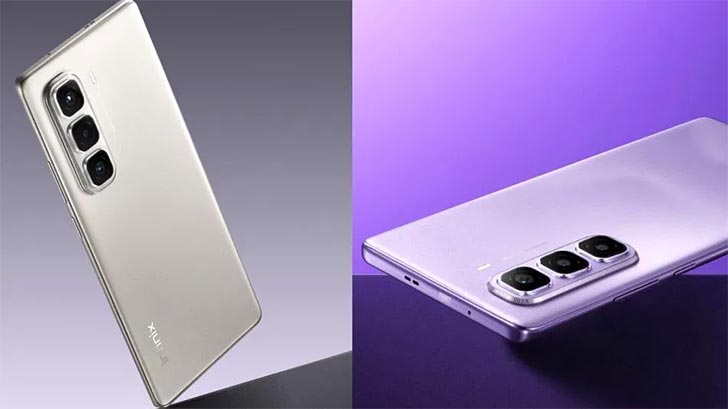The Rise of Quantum Computing: What You Need to Know Today
Introduction: A New Era in Computing
The future of technology is being rewritten by a powerful force—quantum computing. Unlike traditional computers that use bits (0s and 1s), quantum computers harness the bizarre principles of quantum mechanics to process data in entirely new ways. From drug discovery and climate modeling to revolutionizing artificial intelligence, quantum computing is set to transform industries across the globe. But what does this really mean, and why should you care today?
What Is Quantum Computing?
At its core, quantum computing represents a radical departure from classical computing. Instead of using bits, quantum computers use qubits—quantum bits that can exist in multiple states simultaneously, thanks to the quantum phenomena of superposition and entanglement. This allows quantum machines to perform calculations exponentially faster than today’s fastest supercomputers for certain types of problems.
Key Concepts:
- Qubits: Basic unit of quantum information; can represent both 0 and 1 at the same time.
- Superposition: A qubit’s ability to be in multiple states at once.
- Entanglement: A quantum link between qubits, allowing them to influence each other instantaneously.
- Quantum Gates: Logical operations performed on qubits, similar to classical logic gates but more complex.
Why Quantum Computing Matters Now
While quantum computing was once the domain of theoretical physics, it’s now becoming a real-world technology with practical implications.
Current Momentum:
- Google, IBM, Microsoft, and Intel are investing billions into quantum research.
- Startups like Rigetti, IonQ, and D-Wave are building functional quantum processors.
- Governments in the U.S., China, and Europe are funding national quantum strategies.
Breakthrough Use Cases:
- Drug Discovery: Simulating molecules to develop cures faster and more efficiently.
- Finance: Enhancing portfolio optimization, fraud detection, and risk modeling.
- Cybersecurity: Both a threat and a solution—quantum could break traditional encryption while also enabling quantum-safe algorithms.
- Climate Modeling: Simulating global systems with unprecedented accuracy to predict changes and develop sustainable solutions.
Quantum vs. Classical Computing: The Big Difference
| Feature | Classical Computing | Quantum Computing |
|---|---|---|
| Data Unit | Bit (0 or 1) | Qubit (0 and 1 simultaneously) |
| Processing Style | Sequential/Parallel | Exponential/Probabilistic |
| Best For | Everyday computing, apps | Optimization, simulation, cryptography |
| Speed | Limited by transistor power | Scales exponentially with qubit count |
Challenges to Overcome
Quantum computing isn’t without hurdles. It’s still in the early stages, and many challenges remain:
- Decoherence: Qubits are fragile and lose their quantum state quickly.
- Error Rates: Quantum operations are prone to noise and require error correction.
- Scalability: Building machines with millions of qubits is a massive engineering challenge.
- Accessibility: Quantum programming languages and platforms are still evolving.
How Close Are We to a Quantum Revolution?
We’re currently in the Noisy Intermediate-Scale Quantum (NISQ) era—a phase where devices have 50–100 qubits but are not yet fault-tolerant. Despite this, the pace is accelerating:
- Google achieved “quantum supremacy” in 2019 with a task no classical supercomputer could replicate in real time.
- IBM has launched its 1000+ qubit Condor chip and aims to scale quantum systems rapidly.
- Amazon Braket and Microsoft Azure Quantum offer quantum computing-as-a-service in the cloud.
While practical, widespread use is still a few years away, organizations are already preparing for a quantum-ready future.
Who Should Pay Attention?
- Tech Professionals: Upskilling in quantum algorithms, hardware, and programming languages like Q# and Qiskit.
- Enterprises: Investing in quantum partnerships and pilot projects.
- Students: Exploring careers in quantum physics, computer science, and quantum engineering.
- Everyday Citizens: Staying informed on how this tech may impact privacy, job markets, and innovation.
Conclusion: Be Quantum-Aware Today
Quantum computing is not science fiction—it’s becoming science fact. Although we may still be years away from widespread use, its implications are too big to ignore. Governments, businesses, and technologists are already adapting, and so should we.
Staying informed today means being prepared for tomorrow’s breakthroughs. As quantum advances push us toward a new era of problem-solving, industries and individuals that embrace this technology early will reap the greatest benefits.
FAQs: Quantum Computing Explained
Q1: Can quantum computers replace classical computers?
No. Quantum computers are specialized tools meant for specific tasks like optimization and simulation. They won’t replace classical computers for general tasks like browsing or word processing.
Q2: Are quantum computers available to the public?
Yes, cloud-based platforms like IBM Quantum and Amazon Braket allow users to access real quantum computers for experimentation and learning.
Q3: How many qubits does a powerful quantum computer have today?
As of 2025, companies like IBM and IonQ have machines exceeding 100 qubits, but fully error-corrected, scalable systems are still in development.
Q4: Is quantum computing dangerous for cybersecurity?
Potentially. Quantum computers could crack current encryption systems, which is why quantum-resistant cryptography is being developed simultaneously.
Stay informed. Stay ahead. Only on Nexttechplus—your trusted source for tech revolutions shaping the future.













